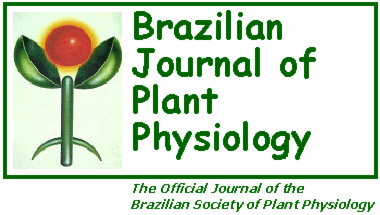Abstracts
In this study, the effects of cadmium (Cd) on lipid peroxidation, electrolyte leakage, protein oxidation, ascorbate peroxidase (APX; E.C. 1.11.1.11), catalase (CAT; E.C. 1.11.1.6) and superoxide dismutase (SOD; E.C. 1.15.1.1) activities, and ascorbic acid, non-protein thiol groups and total soluble protein contents in cucumber seedlings (Cucumis sativus L.) were investigated. Seedlings were grown in vitro in an agar-solidified substrate containing four Cd levels as CdCl2 (0, 100, 400, and 1000 µmol L-1) for 10 d. The lowest Cd level decreased the malondialdehyde concentration. Electrolyte leakage increased only at 1000 µmol Cd L-1, whereas protein oxidation and total soluble protein content were enhanced at 400 and 1000 µmol Cd L-1. Activity of APX was inhibited while the activities of CAT and SOD were increased at all Cd concentrations. Ascorbic acid was enhanced at 400 and 1000 µmol Cd L-1 whereas non-protein thiol groups were increased at all Cd supplies. The results evidence the importance of the enzymatic and non-enzymatic antioxidant system in response to cadmium toxicity in cucumber seedlings.
antioxidant enzymes; ascorbic acid; Cucumis sativus; heavy metal; lipid peroxidation; protein oxidation

 Cadmium toxicity causes oxidative stress and induces response of the antioxidant system in cucumber seedlings
Cadmium toxicity causes oxidative stress and induces response of the antioxidant system in cucumber seedlings





